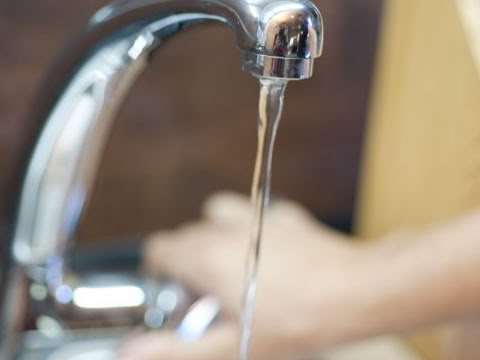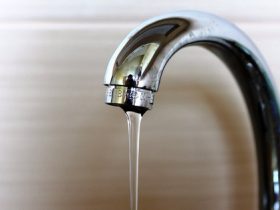Just how do you actually feel when it comes to 9 Reasons for Low Water Pressure in Your House?

Low tide stress in your house can be a discouraging trouble, influencing every little thing from showering to cleaning dishes. If you're experiencing weak water circulation, there are numerous possible reasons and options to check out. In this guide, we'll discuss typical factors for low water pressure and practical steps to attend to the problem effectively.
Introduction to Low Water Pressure
Low water pressure occurs when the flow of water from your faucets, showers, and various other fixtures is weak than normal. This can make day-to-day tasks much more challenging and less effective. Recognizing the reasons for low water pressure is critical to finding the best solution.
Common Reasons For Low Water Pressure
Faulty Stress Regulators
Stress regulatory authorities are in charge of keeping consistent water stress in your house. If they malfunction, it can lead to low tide pressure or irregular flow throughout your house.
Community Water System Issues
Sometimes, the problem exists outside your home. Metropolitan water problems, such as main line leakages or upkeep work, can briefly reduce water stress in your location.
Pipeline Obstructions
In time, pipes can end up being clogged with mineral deposits, sediment, or debris, restricting the flow of water. This is a typical problem in older homes with galvanized steel pipes.
Deterioration
Corrosion within pipes can result in leaks and reduced water pressure. Corrosion build-up can tighten water circulation, particularly in maturing plumbing systems.
How to Identify Low Water Pressure
Checking Pipes
Examine noticeable pipes for signs of leakages, rust, or blockages. Take notice of any unusual audios, such as banging or rattling pipes, which can show concerns within the plumbing system.
Consulting with a Plumber
If you're unable to pinpoint the root cause of low tide stress, take into consideration working with a specialist plumber to conduct a detailed assessment. They can identify underlying issues and suggest proper remedies.
Examining Taps and Components
Beginning by examining the water pressure at various faucets and fixtures throughout your home. If the issue is separated to particular locations, it may suggest localized problems.
Do It Yourself Solutions to Take Care Of Low Tide Pressure
Flushing Hot Water Heater
Sediment buildup in the hot water heater can limit flow and decrease effectiveness. Purging the storage tank occasionally helps get rid of sediment and keep optimal performance.
Inspecting Pressure Regulatory Authority
Guarantee that the stress regulator is working properly. Adjusting or replacing the regulatory authority can assist bring back appropriate water pressure throughout your home.
Cleaning Up Aerators and Showerheads
Natural resources can accumulate in aerators and showerheads, minimizing water circulation. Get rid of and cleanse these parts on a regular basis to boost water stress.
Cleaning Clogs in Water Lines
For minor blockages, attempt using a plumbing serpent or chemical drain cleaner to clear obstructions in pipelines. Be cautious when using chemicals and comply with safety guidelines.
When to Call a Professional Plumber
If do it yourself efforts fail to settle the issue or if you think substantial plumbing issues, it's ideal to look for support from a licensed plumber. They have the proficiency and devices to resolve complicated issues securely and effectively.
Safety Nets to Preserve Water Stress
Mounting a Stress Booster
Think about installing a stress booster pump to improve water stress in areas with consistently low flow. This can be especially beneficial for multi-story homes or homes with high-demand fixtures.
Surveillance Water Usage
Be mindful of water usage routines and prevent ill-using the plumbing system. Simple modifications, such as shocking showers and laundry tons, can aid keep sufficient water stress.
Routine Upkeep
Arrange regular maintenance for your plumbing system to avoid concerns such as corrosion, leakages, and clogs. Dealing with small issues early can assist avoid more considerable repairs later.
Conclusion
Handling low water pressure can be aggravating, yet recognizing the underlying causes and implementing proper services can recover optimal flow throughout your home. Whether it's cleaning aerators, inspecting pipes, or consulting with a plumber, taking aggressive steps can make sure a consistent supply of water for your daily demands.
HOW TO FIX LOW WATER PRESSURE IN YOUR HOUSE
When your plumbing system functions properly, you likely never think about the water pressure coming from your faucets, shower heads, or other water fixtures. If you experience low water pressure in your house, though, it can quickly cause problems for cooking, cleaning, bathing, and laundry. Learning how to fix low water pressure in your house can help you avoid frustrating situations and worsening plumbing issues.
When investigating why your home has low water pressure, call the plumbing professionals at Hutchinson to inspect your system, identify the problem, and perform necessary repairs. Our highly-trained plumbing system experts utilize the best tools and techniques available to resolve issues with your home’s plumbing system. Call today to schedule a service with our experts and resolve the low water pressure in your home.
Common Causes of Low Water Pressure
While learning about how to fix low water pressure in your house, it’s essential to understand the various causes of this issue. From plumbing system failures to issues with your water fixtures, there are many reasons for low water pressure in a home. The most common causes of low water pressure include:
Pipe corrosion: If you live in an old house, your pipes could be much older than you realize. Over time, most pipes corrode, especially those made from galvanized steel. Corrosion creates small holes in your pipes that allow water to leak as it travels to your fixtures, leading to low water pressure. Hard water: Hard water forms when water retains a certain concentration of mineral and sediment buildup. Hard water can exacerbate corrosion and reduce water pressure. Hard water remains one of the main culprits of clogged pipes. Clogged pipes: When a pipe blockage clogs your system, it restricts water flow. That’s why clogged pipes are a leading cause of low water pressure. Faulty fixtures: Components within individual water fixtures can experience isolated clogging and rusting that cause low water pressure. If you notice only low shower pressure or limited faucet flow, inspect your system for faulty fixtures displaying rusting, clogging, and other damage. Water line leaks: Your water supply usually comes from a community source connected to your home through a water line. Any leaking in this water line will reduce water pressure before it enters your home. If you share a water line with neighbors, they might also notice low water pressure due to this problem. Broken pressure regulator: The pressure regulator ensures the water flowing throughout your home remains at a psi of about 50. Damage or breakdown of this crucial component will reduce water pressure throughout your property. Closed valve: The water valve supplying your home must be fully open to enable proper water pressure. A partially closed valve will yield low water pressure and cause issues. 5 Ways to Fix Low Water Pressure
Check for Leaks
Depending on their severity, leaks are usually easy to identify as the cause of your low water pressure. Whether your basement floods overnight or you notice mold growth on surfaces near your pipes, leaks usually present noticeable symptoms. In most cases, you’ll need to call professionals to replace sections of damaged piping or seal water line leaks.
Clear Clogged Pipes and Drains
Clogs can occur in any part of your system at any time. In most cases, it’s difficult to resolve clogged pipes and drains without professional equipment and experience.
Hutchinson experts can perform a comprehensive plumbing system inspection to identify the clog’s source and remove obstructions from your pipes. With the help of advanced equipment, we can restore your home’s normal water flow and pressure.
Replace the Pressure Regulator
After identifying a faulty pressure regulator as the cause of your low water pressure, there’s nothing to do but replace the mechanism. Homeowners should never conduct their own replacement.
Attempting to replace a crucial component like your pressure regulator that attaches to your overall plumbing framework could cause unnecessary damage and worsen the situation. Instead, rely on professionals to replace your pressure regulator properly.
Repair or Replace Broken Faucets and Fixtures
If you notice water pressure issues in an individual faucet or fixture, you can solve the problem quickly. Depending on the type and location of the fixture, you can likely replace it yourself.
For homes with custom fixtures, you might need to special order new parts. In these cases, opting for professional replacements helps you avoid any mishaps that could leave your water feature dysfunctional for longer.
Install a Pressure Booster
Water pressure problems impacting your neighborhood or community at large might require more overarching solutions. If your neighbors experience low water pressure as well, you might need to integrate a pressure booster into your water supply line.
Pressure boosters upgrade the water pressure starting at the source. These mechanisms can provide water pressure benefits to any homes on the same supply line. Call Hutchinson today to install a pressure booster on your water supply line.
Call Hutchinson to Fix All Your Plumbing Issues
Low water pressure is just one of many plumbing problems that reduce home comfort and cause system issues. The top-rated professionals at Hutchinson offer comprehensive plumbing services, including system inspections, maintenance, and repairs.
https://www.hutchbiz.com/blog/2024/01/15/how-to-fix-low-water-pressure-in-house/

I ran across that piece about Dealing with Low Water Pressure in Your Home while browsing on the search engines. Loved our article? Please quickly share it. Let others locate it. Bless you for your time. Please visit our blog back soon.
Book Services